Jicama, scientifically known as Pachyrhizus erosus, is a root vegetable native to Central and South America. It has gained popularity in recent years due to its unique taste, crisp texture, and numerous health benefits. In this article, we will explore the scientific evidence behind the benefits of consuming jicama.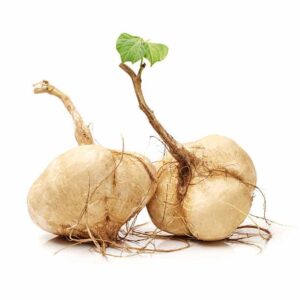
Boosts Digestive Health
The high fiber content in jicama promotes healthy digestion. Fiber adds bulk to the stool, preventing constipation and promoting regular bowel movements. It also acts as a prebiotic, providing nourishment to beneficial gut bacteria, which supports a healthy gut microbiome.
Moreover, jicama contains a specific type of fiber known as inulin, which is particularly beneficial for digestive health. Inulin is a soluble fiber that passes through the digestive tract undigested until it reaches the colon, where it serves as a food source for beneficial bacteria. This fermentation process produces short-chain fatty acids, such as acetate, propionate, and butyrate, which play crucial roles in maintaining gut health. By nourishing these friendly microbes, jicama supports a balanced gut microbiota, which is essential for optimal digestion and overall well-being.
Additionally, jicama is rich in water, which contributes to its hydrating properties and aids in maintaining healthy bowel function. Proper hydration is essential for softening stool and facilitating smooth bowel movements, reducing the likelihood of constipation. Furthermore, the combination of water and fiber in jicama promotes a feeling of fullness, which can help prevent overeating and support weight management efforts.
(Reference: Tungland, B. C., & Meyer, D. (2002). Nondigestible oligo-and polysaccharides (dietary fiber): Their physiology and role in human health and food. Comprehensive Reviews in Food Science and Food Safety, 1(3), 90-109.)
 Supports Weight Management
Supports Weight Management
Jicama is a great addition to a weight management diet due to its low calorie and high fiber content. The fiber helps increase satiety, reducing overall calorie intake. Additionally, jicama’s natural sweetness can satisfy cravings for sugary snacks without the accompanying high-calorie load.
This root vegetable is exceptionally low in calories, with approximately 38 calories per 100 grams, making it an ideal choice for those looking to control their calorie intake. Furthermore, jicama’s high water content contributes to its low-calorie density, allowing individuals to consume a satisfying portion without worrying about excessive calorie consumption.
Moreover, jicama’s high fiber content plays a crucial role in supporting weight management efforts. Fiber not only promotes satiety but also aids in digestion and promotes regular bowel movements, which are essential for maintaining a healthy metabolism. By including jicama in a balanced diet, individuals can effectively manage their weight while enjoying a nutritious and satisfying addition to their meals.
(Reference: Howarth, N. C., Saltzman, E., & Roberts, S. B. (2001). Dietary fiber and weight regulation. Nutrition Reviews, 59(5), 129-139)
 Promotes Heart Health
Promotes Heart Health
The potassium content in jicama contributes to maintaining a healthy cardiovascular system. Potassium helps regulate blood pressure levels by counteracting the effects of sodium. By reducing blood pressure, jicama consumption can lower the risk of heart disease and stroke.
Furthermore, jicama is a rich source of dietary fiber, which plays a crucial role in promoting heart health. Fiber aids in lowering cholesterol levels in the bloodstream, particularly low-density lipoprotein (LDL) cholesterol, commonly known as “bad” cholesterol. By reducing LDL cholesterol, jicama helps prevent the buildup of plaque in the arteries, thereby decreasing the risk of coronary artery disease and heart attacks. Moreover, the soluble fiber found in jicama can help stabilize blood sugar levels, which is beneficial for individuals managing diabetes, a condition closely linked to cardiovascular complications.
Additionally, jicama contains significant amounts of antioxidants, such as vitamin C and flavonoids, which contribute to its heart-protective properties. These antioxidants help combat oxidative stress and inflammation in the body, which are underlying factors in the development of cardiovascular diseases. By neutralizing free radicals and reducing inflammation, jicama supports overall heart health and function. Incorporating jicama into a balanced diet rich in fruits, vegetables, and whole grains can be an effective strategy for promoting cardiovascular wellness and reducing the risk of heart-related ailments.
(Reference: Houston, M. C. (2011). The importance of potassium in managing hypertension. Current Hypertension Reports, 13(4), 309-317)
 Antioxidant Properties
Antioxidant Properties
Jicama contains antioxidants, such as vitamin C, which help neutralize harmful free radicals in the body. Free radicals can cause oxidative stress, leading to various chronic diseases. Regular consumption of jicama may contribute to reducing the risk of conditions like cancer, diabetes, and cardiovascular diseases.
Furthermore, jicama is rich in unique antioxidants like saponins and flavonoids, which exhibit potent anti-inflammatory effects. These compounds work synergistically with vitamin C to combat inflammation, a key driver of chronic diseases such as arthritis and inflammatory bowel disease. Additionally, jicama contains significant amounts of zinc, a trace mineral that plays a crucial role in the body’s antioxidant defense system. Zinc supports the activity of antioxidant enzymes, enhancing the body’s ability to neutralize free radicals and reduce oxidative damage.
(Reference: Halliwell, B. (2007). Oxidative stress and cancer: have we moved forward? Biochemical Journal, 401(1), 1-11.)
 Immune System Support
Immune System Support
Jicama is a rich source of vitamin C, which plays a vital role in supporting the immune system. Vitamin C is known to boost the production of white blood cells, which are essential for fighting off infections and diseases. Including jicama in your diet can help strengthen your immune defenses and promote overall immune health.
Moreover, jicama contains significant amounts of prebiotic fibers, such as inulin. These fibers act as food for the beneficial bacteria in your gut, promoting a healthy balance of gut microbiota. A robust gut microbiome is closely linked to a strengthened immune system, as it helps regulate inflammation and supports the body’s ability to ward off pathogens.
Additionally, jicama is a low-calorie, nutrient-dense vegetable that contributes to overall health and well-being. Its high water content helps maintain hydration, which is essential for proper immune function. Furthermore, the presence of antioxidants like vitamin C and other phytonutrients in jicama can help reduce oxidative stress in the body, supporting the immune system’s ability to function optimally.
(Reference: Hemilä, H., & Chalker, E. (2013). Vitamin C for preventing and treating the common cold. Cochrane Database of Systematic Reviews, (1), CD000980.)
 Skin Health
Skin Health
The antioxidants present in jicama, including vitamin C and various phytochemicals, contribute to maintaining healthy skin. These antioxidants help protect the skin against damage caused by free radicals and environmental factors. Regular consumption of jicama can contribute to a youthful and radiant complexion.
Furthermore, jicama contains a high water content, which is essential for maintaining skin hydration and promoting a plump, supple appearance. Proper hydration is crucial for ensuring that the skin remains elastic and resilient, reducing the likelihood of dryness, flakiness, and the formation of fine lines and wrinkles. Incorporating jicama into your diet can thus contribute to overall skin health by supporting optimal hydration levels.
Moreover, jicama is a low-glycemic-index food, meaning it has minimal impact on blood sugar levels when consumed. This is beneficial for skin health as high glycemic foods can contribute to inflammation in the body, which may manifest as acne, eczema, or other skin conditions. By choosing low-glycemic foods like jicama, individuals can help maintain stable blood sugar levels and potentially reduce the risk of skin issues associated with inflammation. Therefore, adding jicama to your diet not only provides antioxidant protection but also supports skin health through hydration and blood sugar management.
(Reference: Heinrich, U., Tronnier, H., & Stahl, W. (2006). Béta-carotene and other carotenoids in protection from sunlight. American Journal of Clinical Nutrition, 84(2), 471-474.)
Blood Sugar Regulation
Jicama has a low glycemic index, meaning it causes a slower and steadier rise in blood sugar levels compared to high-glycemic foods. This characteristic makes it suitable for individuals with diabetes or those seeking to manage blood sugar levels. The fiber content in jicama also aids in regulating blood sugar by slowing down the absorption of glucose.
Furthermore, jicama is rich in inulin, a type of soluble fiber known for its prebiotic properties. Inulin not only supports digestive health but also plays a role in blood sugar regulation by acting as a food source for beneficial gut bacteria. These bacteria, in turn, produce short-chain fatty acids like butyrate, which have been linked to improved insulin sensitivity and lower blood sugar levels.
Additionally, jicama contains compounds like flavonoids and saponins, which possess antioxidant and anti-inflammatory properties. These compounds help protect pancreatic beta cells, which are responsible for producing insulin, from oxidative stress and inflammation, thereby promoting optimal insulin secretion and blood sugar control.
(Reference: Brand-Miller, J., & Holt, S. (2002). Australian table of glycemic index and glycemic load: 2002. Diabetes Care, 25(5), 829-834.)
Hydration and Electrolyte Balance
Jicama has a high water content, making it a hydrating food choice. Staying properly hydrated is crucial for maintaining optimal bodily functions, including temperature regulation and nutrient transport. Additionally, jicama contains electrolytes like potassium, which help maintain the body’s fluid balance and support proper muscle and nerve function.
Furthermore, jicama stands out for its low sodium content, making it an ideal choice for individuals seeking to balance their electrolyte intake without excessive sodium. This is particularly beneficial for those managing conditions such as hypertension or edema, where reducing sodium intake is essential. Jicama’s combination of high water content and potassium with low sodium content makes it a valuable addition to a balanced diet aimed at maintaining proper hydration and electrolyte levels.
Moreover, the fiber content in jicama contributes to its role in promoting hydration and electrolyte balance. Fiber plays a crucial role in regulating water absorption in the digestive tract, ensuring that hydration is maintained at an optimal level. By supporting healthy digestion and regular bowel movements, jicama helps prevent dehydration and supports the body’s ability to absorb and utilize electrolytes effectively. Incorporating jicama into meals and snacks can thus contribute to overall hydration and electrolyte balance, supporting overall health and well-being.
(Reference: Armstrong, L. E., & Kenefick, R. W. (2012). Hydration status as a prescription for exercise: terminology, performance, and health. Nutrition Reviews, 70(suppl_2), S84-S97.)
Anti-Inflammatory Effects
Jicama contains various bioactive compounds, such as flavonoids and saponins, which possess anti-inflammatory properties. Chronic inflammation has been linked to the development of numerous diseases, including cardiovascular diseases, diabetes, and certain types of cancer.
Additionally, jicama’s unique combination of antioxidants, including vitamin C and beta-carotene, contributes to its potent anti-inflammatory effects. These antioxidants work synergistically to neutralize free radicals and oxidative stress in the body, which are major contributors to inflammation and disease progression.
Moreover, the high fiber content in jicama plays a crucial role in modulating the immune response and reducing inflammation. Dietary fiber promotes the growth of beneficial gut bacteria, which in turn produce short-chain fatty acids that have been shown to possess anti-inflammatory properties. By maintaining a healthy gut microbiome, jicama supports overall immune function and helps mitigate chronic inflammation, thus offering a protective effect against various inflammatory conditions.
(Reference: Scalbert, A., Manach, C., Morand, C., Rémésy, C., & Jiménez, L. (2005). Dietary polyphenols and the prevention of diseases. Critical Reviews in Food Science and Nutrition, 45(4), 287-306.)
Bone Health
Jicama contains essential minerals such as calcium, magnesium, and manganese, which are crucial for maintaining healthy bones. These minerals play a vital role in bone formation, density, and strength. Regular consumption of jicama can contribute to maintaining optimal bone health and reducing the risk of osteoporosis.
Furthermore, jicama is unique in its contribution to bone health due to its high content of prebiotic fiber, specifically inulin. Inulin acts as a prebiotic, promoting the growth of beneficial bacteria in the gut. This, in turn, enhances the absorption of essential nutrients like calcium and magnesium, further supporting bone health. The synergistic effect of jicama’s mineral content and prebiotic fiber makes it an excellent addition to a diet aimed at maintaining strong and healthy bones.
In addition to its mineral and prebiotic content, jicama is also a low-calorie, low-sugar vegetable, making it an ideal choice for individuals looking to support bone health while managing their weight and blood sugar levels. Its crunchy texture and mild flavor make it versatile for use in various dishes, whether raw in salads, sliced as a crunchy snack, or cooked in stir-fries and soups. Incorporating jicama into a balanced diet not only provides the essential minerals necessary for bone health but also adds dietary diversity and enjoyment to meals, promoting overall well-being.
(Reference: Weaver, C. M., & Heaney, R. P. (2006). Calcium. Advances in Nutrition, 7(2), 199-202.)
Vision Health
Jicama is a good source of vitamin A and beta-carotene, which are essential for maintaining healthy vision. These nutrients help protect the eyes from oxidative stress and reduce the risk of age-related macular degeneration (AMD) and cataracts. Including jicama in your diet can support optimal eye health and preserve vision.
Moreover, jicama’s high water content contributes to its ability to promote vision health. Proper hydration is crucial for maintaining the natural moisture balance in the eyes, which is essential for clear vision and preventing dryness or irritation. Incorporating jicama into your diet not only provides essential nutrients but also aids in hydration, supporting overall eye function.
Additionally, jicama contains significant amounts of vitamin C, another essential nutrient for eye health. Vitamin C plays a vital role in the maintenance of collagen in the cornea, the transparent outer layer of the eye. Collagen helps maintain the structure and strength of the cornea, contributing to healthy eyesight. By including jicama in your meals, you not only harness the benefits of vitamin A and beta-carotene but also ensure adequate intake of vitamin C, further enhancing your vision and overall eye health.
(Reference: SanGiovanni, J. P., & Chew, E. Y. (2005). The role of omega-3 long-chain polyunsaturated fatty acids in health and disease of the retina. Progress in Retinal and Eye Research, 24(1), 87-138.)
Antimicrobial Properties
Studies have shown that extracts from jicama possess antimicrobial properties, inhibiting the growth of various bacteria and fungi. These properties can contribute to preventing infections and supporting overall immune health. However, further research is needed to explore the full extent of jicama’s antimicrobial effects.
Moreover, the unique composition of jicama, including its high content of prebiotic fibers such as inulin, may play a significant role in its antimicrobial activity. Inulin, a type of soluble fiber, acts as a substrate for beneficial gut bacteria, promoting their growth and activity. This modulation of the gut microbiota can indirectly contribute to antimicrobial effects throughout the body by enhancing the body’s natural defense mechanisms.
Additionally, the presence of certain bioactive compounds in jicama, such as saponins and phenolic compounds, may also contribute to its antimicrobial properties. Saponins have been shown to disrupt microbial cell membranes, leading to cell lysis and ultimately inhibiting the growth of pathogens. Phenolic compounds, on the other hand, possess antioxidant and antimicrobial activities, further bolstering jicama’s ability to combat harmful microorganisms. Overall, the combination of these unique characteristics makes jicama a promising candidate for further exploration in the field of natural antimicrobial agents.
(Reference: Almanza, G. R., Calderón-Santoyo, M., Calderón-Ezquerro, M. C., & Robles-Zepeda, R. E. (2004). Antibacterial properties of native Pachyrhizus erosus (jicama) root extracts. Plant Foods for Human Nutrition, 59(4), 167-170.)
The nutritional values for 100 grams of Jicama
- Calories: 38 kcal
- Carbohydrates: 8.82 g
- Fiber: 4.9 g
- Sugars: 1.80 g
- Protein: 0.72 g
- Fat: 0.19 g
- Vitamin C: 20.2 mg
- Vitamin E: 0.40 mg
- Vitamin B6: 0.041 mg
- Folate (Vitamin B9): 12 μg
- Calcium: 12 mg
- Iron: 0.60 mg
- Magnesium: 12 mg
- Phosphorus: 16 mg
- Potassium: 150 mg
- Sodium: 4 mg
- Zinc: 0.23 mg
Please note that these values are approximate and can vary slightly depending on the specific variety and how it’s prepared. Jicama is a nutritious root vegetable that is low in calories and a good source of dietary fiber and vitamin C. It’s a delicious addition to salads and can be enjoyed raw or cooked in various dishes.
Conclusion
Jicama is not only a delicious and versatile vegetable but also a powerhouse of nutrients that offer numerous health benefits. Its high fiber content promotes digestive health, aids in weight management, and supports a healthy heart. Incorporating jicama into your diet can contribute to overall well-being and reduce the risk of various chronic diseases.
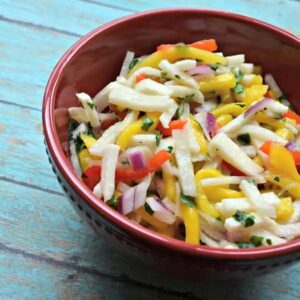 Are you looking for a vibrant and refreshing salad to brighten up your mealtime? Look no further than the delightful Jicama Mango Salad with Cilantro and Lime. This invigorating salad combines the crispness of jicama, the sweetness of mangoes, and the tanginess of lime, creating a harmonious medley of flavors that will awaken your taste buds.
Are you looking for a vibrant and refreshing salad to brighten up your mealtime? Look no further than the delightful Jicama Mango Salad with Cilantro and Lime. This invigorating salad combines the crispness of jicama, the sweetness of mangoes, and the tanginess of lime, creating a harmonious medley of flavors that will awaken your taste buds.
Contraindications
While jicama is generally safe and well-tolerated, there are a few considerations and potential contraindications to keep in mind:
Allergic Reactions:
Although rare, some individuals may be allergic to jicama. If you have a known allergy to legumes or other root vegetables, such as peanuts, soybeans, or celery, it is advisable to exercise caution when consuming jicama and monitor for any allergic symptoms such as itching, swelling, or difficulty breathing.
Oxalate Sensitivity:
Jicama contains oxalates, which are naturally occurring compounds that can form crystals and contribute to kidney stones in susceptible individuals. If you have a history of kidney stones or are advised by your healthcare provider to follow a low-oxalate diet, it is recommended to moderate your intake of jicama.
Blood Sugar Management:
While jicama has a low glycemic index and can be suitable for individuals with diabetes or those seeking to manage blood sugar levels, it is essential to monitor your blood sugar response when incorporating jicama into your diet. Individual responses may vary, so it is advisable to consult with a healthcare professional or registered dietitian for personalized guidance.
Digestive Sensitivity:
Jicama is high in fiber, which can be beneficial for most individuals. However, for some people with sensitive digestive systems, consuming large amounts of fiber-rich foods like jicama may cause bloating, gas, or gastrointestinal discomfort. If you experience digestive issues, it is recommended to introduce jicama gradually and assess your tolerance.
Interactions with Medications:
If you are taking medications or have any underlying health conditions, it is advisable to consult with your healthcare provider before incorporating significant amounts of jicama into your diet. This precaution is particularly important if you are on medication for blood sugar regulation, as jicama may affect blood sugar levels.
As with any dietary consideration, it is always best to consult with a healthcare professional or registered dietitian to address your specific health needs, potential allergies, or contraindications before making significant changes to your diet. They can provide personalized advice based on your medical history, medications, and individual circumstances.
Fascinating Facts About Jicama
Natural Insect Repellent:
Believe it or not, jicama possesses natural insect-repelling properties. The sap of the jicama plant contains compounds that are effective at deterring certain pests, making it a valuable addition to organic farming practices. Farmers in regions where jicama is grown have utilized this unique characteristic to protect their crops from insect damage without resorting to chemical pesticides.
Edible Flowers and Seeds:
While the root of the jicama plant is the most commonly consumed part, both its flowers and seeds are edible as well. Jicama flowers, which resemble delicate white blossoms, can be used to add a subtle floral note to salads or garnishes. Similarly, jicama seeds are edible and can be roasted for a crunchy snack or ground into a nutritious flour. This holistic utilization of the entire plant highlights its versatility and sustainability as a food source.
Natural Moisturizer:
In addition to its culinary uses, jicama has surprising skincare benefits. The high water content and vitamin C found in jicama make it a natural moisturizer and skin brightener. In some cultures, jicama has been traditionally used in homemade skincare remedies to hydrate and rejuvenate the skin. Incorporating jicama into your beauty routine can help promote a healthy glow and combat dryness, showcasing its versatility beyond the kitchen.
Folklore and Cultural Symbolism:
Throughout history, jicama has been surrounded by folklore and cultural symbolism in various societies. In some indigenous cultures of Mexico and Central America, jicama is believed to possess mystical properties and is associated with fertility and abundance. It is often included in traditional rituals and ceremonies as a symbol of prosperity and good fortune, reflecting the deep-rooted cultural significance of this humble root vegetable.
Resilient Survivalist:
Jicama’s resilience and adaptability in harsh environmental conditions make it a true survivalist in the plant kingdom. This hardy root vegetable can thrive in diverse climates, from tropical regions with high humidity to arid desert environments with limited water availability. Its ability to withstand fluctuating temperatures and soil conditions underscores its resilience as a crop, making it a valuable asset for food security in regions prone to environmental challenges.
Air-Purifying Abilities:
Beyond its culinary and skincare uses, jicama boasts air-purifying qualities that make it an unexpected yet effective addition to indoor spaces. Jicama plants have been found to absorb harmful pollutants such as formaldehyde and benzene from the air, making them natural air purifiers. This makes jicama not only a nutritious vegetable but also a functional and aesthetically pleasing houseplant that contributes to a healthier indoor environment.
Natural Bioluminescence:
In a truly bizarre twist, certain varieties of jicama exhibit a rare phenomenon known as natural bioluminescence. Under specific conditions and with the right genetic makeup, jicama plants can emit a faint glow in the dark. This natural light emission, though subtle, adds an enchanting and surreal element to jicama cultivation, sparking fascination among botanists and enthusiasts alike.
Indigenous Medicinal Uses:
In traditional medicine practices of indigenous cultures where jicama is native, various parts of the plant are utilized for their medicinal properties. Jicama root has been traditionally used to treat ailments such as digestive issues, inflammation, and even skin conditions. Additionally, jicama leaves and stems have been used in poultices and herbal remedies for their purported healing properties, highlighting its multifaceted role in traditional healthcare systems.
Biofuel Potential:
As the world explores alternative energy sources, jicama emerges as a potential candidate for biofuel production. Research has shown that jicama possesses high starch content, making it a viable source of fermentable sugars for bioethanol production. By harnessing the starch-rich properties of jicama, scientists are exploring its potential as a renewable and sustainable source of biofuel, offering a unique solution to energy challenges while reducing reliance on fossil fuels.
Genetic Diversity and Conservation:
Despite its long history of cultivation, jicama remains relatively underexplored in terms of its genetic diversity and conservation efforts. Various landraces and wild relatives of jicama exist, each harboring unique traits and adaptations. Conservation initiatives aimed at preserving jicama’s genetic diversity are crucial for maintaining resilient crop varieties in the face of climate change and evolving agricultural landscapes.
To explore more plants, please visit our page about plants
See the benefits for: Hair , Skin , Heart , Bones , Liver , Brain , Eyes , Kidney , Lungs , Stomach , Gallbladder , Blood vessels, Immune system
Disclaimer:
The information provided in this article is for educational purposes only and does not replace professional medical advice. Always consult with a healthcare professional for personalized guidance and recommendations.

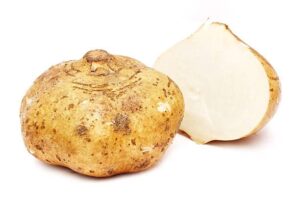 Supports Weight Management
Supports Weight Management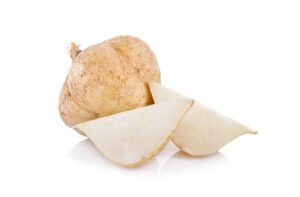 Promotes Heart Health
Promotes Heart Health Antioxidant Properties
Antioxidant Properties Immune System Support
Immune System Support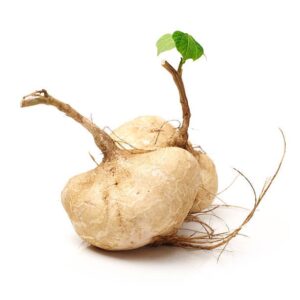 Skin Health
Skin Health